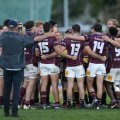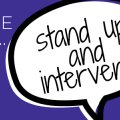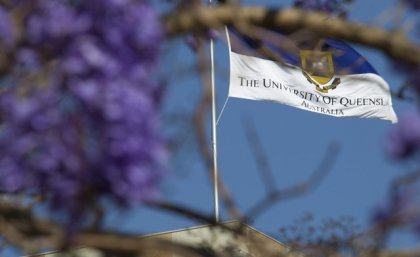
The University of Queensland has a range of experts available to comment on issues being discussed by worldwide leaders at Brisbane’s upcoming G20 summit.
UQ is consistently ranked in the top 100 universities worldwide in multiple independent ranking systems, and has eight research institutes working on solutions for some of the world’s toughest issues around environment, health, education and politics.
Media are welcome to contact experts listed below directly for interviews and comment. If the area you are seeking comment on is not covered, contact the UQ media and communications team on communications@uq.edu.au or 3365 1120, and we’ll endeavour to find you suitable talent.
From the UQ Business School:
- Professor Ulrike Gretzel, UQ Business School Professor of Tourism and Member of the Smart Tourism Research Center at Kyung Hee University, South Korea
Professor Gretzel’s research revolves around human-technology relationships in everyday and touristic contexts as well as the design of human-centric, intelligent systems, the implications of big data for tourism destinations and providers (smart tourism) and the effect of emerging technologies on our relationships with places, companies and brands. She also speaks German.
Contact: u.gretzel@business.uq.edu.au or +61 7 3346 44112 (mobile number available on request, call UQ media on 3365 1120).
- Dr Judith Mair, UQ Business School Tourism Cluster Senior Lecturer in Event Management
Dr Mair’s research focuses on events and their impacts on local communities. She is also interested in the sustainability of events and tourism, and has published widely in the area of events, including business events. She speaks French and German.
Contact: j.mair@uq.edu.au or +61 7 3346 7947 (mobile number available on request, call UQ media on 3365 1120).
- Dr Martina Linnenluecke, UQ Business School Director Undergraduate Programs and Senior Lecturer in Sustainability
Dr Linnenluecke's research focuses on climate change and trend changes in extreme weather events their effect on industries and businesses. Her research on the impacts on global warming has been cited the Intergovernmental Panel on Climate Change Fifth Assessment Report and Special Report on Extreme Events, and has been influential in developing frameworks for adaptation assessments and planning for government and industry. She is the author of the book The Climate Resilient Organizationand also speaks German.
Contact: m.linnenluecke@business.uq.edu.au or +61 7 3346 8115.
- Dr Micheal Axelsen, UQ Business School Postdoctoral Research Fellow in Business Information Systems
Dr Axelsen’s research work focusses on the use of intelligent decision aids and related emerging technologies in the delivery of professional services, with a particular emphasis upon the cognitive effects on professional judgement. Dr Axelsen’s teaching interests are in the area of using information technology to develop value for business organisations.
Contact: m.axelsen@business.uq.edu.au or +61 412 526 375.
- Dr Rebecca Michalak , UQ Business School Associate Lecturer (MBA Program) / Lecturer (MBus Program)
Dr Michalak's research focusses on dysfunctional interpersonal behaviour in the workplace, and the role of cognitive appraisal processes, stress and coping strategies in influencing a range of stressor-related organisational and individual level outcomes, including psychological and psychosomatic health wellbeing. Her research assists organisations in managing psychosocial risks to establish and maintain psychologically safe, socially sustainable and high-performance cultures. Dr Michalak lectures postgraduates in the fields of managing organisational behaviour, and organisational and employee development.
Contact: r.michalak@business.uq.edu.au or +61 400 720 752.
From the School of Economics:
- Dr Hammad Siddiqi, School of Economics Postdoctoral Research Fellow
Dr Siddiqi's work focuses on financial markets, including the role international migrants continue to play in the economies of the countries that they had left behind. He also speaks Urdu/Hindi.
Contact: h.siddiqi@uq.edu.au or +61 7 336 56705 (mobile number available on request, call UQ media on 3365 1120).
From the TC Beirne School of Law:
- Professor Heather Douglas, TC Beirne School of Law Professor of Law, Deputy Dean Research, ARC Future Fellow
Professor Douglas researches in the areas of criminal justice and domestic violence. An Independent Legal Observer for the G20, Professor Douglas will watch and record the interactions of police/security personnel with member of the public during any demonstrations, protests or public events.
- h.douglas@law.uq.edu.au or +61 7 3365 6605.
- Dr Radha Ivory, TC Beirne School of Law Academic
Dr Ivory’s research focusses on transnational criminal law, international human rights law, and governance as they affect individuals, companies, and public sector organisations. Dr Ivory’s international advisory experience and research on financing terrorism have contributed to her work on corruption and asset recovery being published by Cambridge University Press. She also speaks German.
- r.ivory@law.uq.edu.au or +61 7 3365 9123 (mobile number available on request, call UQ media on 3365 1120).
- Dr Paul Harpur, TC Beirne School of Law Academic
Dr Paul Harpur's research and teaching expertise are in the areas of anti-discrimination laws, work health and safety laws and corporate social responsibility. Dr Harpur is involved with probono work and advocacy in relation to the rights of persons with disabilities.
- p.harpur@law.uq.edu.au or +61 7 3365 8864 (mobile number available on request, call UQ media on 3365 1120).
- Associate Professor David Morrison, TC Beirne School of Law Academic
Dr Morrison teaches taxation law, corporate and insolvency law, bankruptcy, financial literacy and finance law. Dr Morrison researches around law, tax and finance especially as it applies to literacy and support for generational change.
- d.morrison@law.uq.edu.au or +61 7 3364 3494.
- Professor Tina Hunter, TC Beirne School of Law Senior Lecturer, Director of the Centre for International Minerals and Energy Law
Professor Hunter researches in the areas of national and international petroleum law, energy security, unconventional petroleum regulation, Arctic petroleum law and governance, property law and resources law and policy. She is presently a member of the South Australian Roundtable for Unconventional Gas Projects, and the working group for the Queensland Modernising Queensland Resources Acts Program. She also speaks Norwegian.
- t.hunter@law.uq.edu.au, +61 7 3346 7551 or 0431 936 104.
- Professor Simon Bronitt, TC Beirne School of Law Professor of Law, Deputy Dean Research
Professor Simon Bronitt has published widely on criminal justice topics ranging across terrorism law and human rights, public protest, covert policing, family violence, and mental health policing. Previously he served as the Director of the Australian Research Council Centre of Excellence in Policing and Security.
- s.bronitt@law.uq.edu.au , +61 7 3365 9785 or 0405 116 773.
- Dr Rebecca Ananian-Welsh, TC Beirne School of Law Lecturer
Dr Ananian-Welsh’s work focusses on terrorism law, ‘bikie laws’ and the Australian Constitution. She has published widely on control orders, preventive detention, secret evidence and other national security measures, focussing in particular on the impact of these schemes on the courts and judicial independence.
- : rebecca.aw@law.uq.edu.au, +61 7 3365 6192 or +61 404 818 411 (be aware Dr Ananian-Welsh is unavailable 14 November).
- Dr Justine Bell, TC Beirne School of Law Lecturer
Dr Bell's main area of research interest is domestic climate change adaptation law, as well as environmental, planning and property law. Dr Bell undertook her postdoctoral research at the Global Change Institute at The University of Queensland, focussing on legal, policy and insurance responses to sea-level rise.
Contact: j.bell@law.uq.edu.au. +61 7 3365 6588 or 0423 339 054.
From the Institute of Molecular Bioscience:
- Professor Brandon Wainwright, Institute for Molecular Bioscience Director
Professor Wainwright investigates medulloblastoma, the most aggressive and frequent form of brain tumour found in children. In partnership with international collaborators, he is identifying the genes that drive tumour growth, with the ultimate goal of developing improved treatments to increase survival rates for patients.
Contact: director@imb.uq.edu.au, +61 7 3346 2112 or +61 439 651 107.
- Professor Jenny Stow Institute for Molecular Bioscience Deputy Director (Research)
Professor Stow’s research is unraveling the complex nature of inflammation or the molecular process behind inflammatory and infectious disease. She is testing existing drugs for new applications in treating inflammation and infection, and is developing new methods for analysing immune responses
Contact: j.stow@imb.uq.edu.au, +61 7 3346 2112 or +61 439 651 107.
- Professor Matt Cooper, Institute for Molecular Bioscience Centre for Superbug Solutions Director
Professor Cooper is designing and developing new antibiotics to combat the global rise of superbugs. He is also discovering new ways to detect and treat tuberculosis and dengue fever, and is investigating the role of gut biota and how this affects inflammation in the development of diseases such as asthma, diabetes and cancer. His research involves collaborations with government agencies and pharmaceutical, biotechnology and medical device companies in Australia, Asia, the UK and the US.
Contact: m.cooper@imb.uq.edu.au, +61 7 3346 2044 or +61 439 651 107.
- Professor Ben Hankamer Institute for Molecular Bioscience Solar Biofuels Research Centre Director
Professor Hankamer is developing next-generation, high-efficiency microalgae production systems to produce a range of high-value products such as vaccines, foods and animal feeds, as well as renewable fuels and clean water. By using solar energy and CO2 to produce these products, algae biotechnologies are well positioned to help us meet the demands of a growing global population. Professor Hankamer also speaks German.
Contact: b.hankamer@imb.uq.edu.au, +61 3346 2012 or +61 439 651 107
- Professor Mark Ragan Institute for Molecular Bioscience Lab Head
Professor Ragan’s research aims to minimise fertiliser runoff into the Great Barrier Reef by using genomics to understand the biodiversity of soil bacteria that are involved in nitrogen fixation in sugarcane soils. He is also using genomics to understanding coral reef biology. This is part of a broad, multidisciplinary project involving researchers from the Global Change Institute (including Professor Ove Hoegh-Guldberg), and support from the Great Barrier Reef Foundation, to apply genome-sequencing technologies to study the adaptability and resilience of Great Barrier Reef organisms and ecosystems.
Contact: m.ragan@imb.uq.edu.au, +61 7 3346 2616 or +61 439 651 107.
- Professor Richard Lewis, Institute for Molecular Bioscience Centre for Pain Research Director
Professor Lewis explores the mechanisms of how the body feels pain and uses this knowledge to develop new drugs to combat chronic pain. To do this, he studies conotoxins, which are small peptides from predatory marine cone snails that are very active in pain pathways. Several conotoxins discovered by scientists at IMB have been taken into the clinic.
Contact: r.lewis@imb.uq.edu.au, +61 7 3346 2374 or +61 439 651 107.
- Dr Irina Vetter, Institute for Molecular Bioscience Centre for Pain Research Deputy Director and UQ School of Pharmacy
Dr Vetter aims to understand the molecular mechanisms behind pain. While all pain has similar symptoms, it is becoming clear that the underlying mechanisms behind pain can vary. In collaboration with international and national researchers, Dr Vetter is identifying new pain pathways and targets. She aims to develop more effective therapies that treat the cause of pain, not just the symptoms. Dr Vetter also speaks German.
Contact: i.vetter@imb.uq.edu.au, +61 7 3346 2660 or +61 439 651 107.
- Professor Kirill Alexandrov Institute for Molecular Bioscience Lab Head and Australian Institute of Bioengineering and Nanotechnology
Professor Alexandrov partners with two Australian biotechnology companies to develop peptide drug candidates and to create high-quality animal feed enzyme supplements. His group is designing proteins that can function as sensors of diseases or environmental pollution. He also speaks German and Russian.
Contact: k.alexandrov@imb.uq.edu.au, +61 7 3346 2334 or +61 439 651 107.
- Dr Mathias Francois Institute for Molecular Bioscience Lab Head
Dr Francois is investigating key genetic pathways influencing lymphatic vascular development. In adults, abnormal formation of lymphatic vessels is associated with a wide range of diseases that include chronic inflammatory disorders, such as rheumatoid arthritis, cancer metastasis and lymphoedema. Understanding lymphatic development will aid development of new therapies to manage the lymphatic network. Dr Francois also speaks French.
Contact: m.francois@imb.uq.edu.au, +61 7 3346 2494 or +61 439 651 107.
From the Faculty of Humanities and Social Sciences:
- Dr Fernanda Claudio, School of Social Science (Anthropology), UQ Womens Postdoctoral Fellow and Past President of African Studies Association of Asia and Pacific.
Dr Claudio’s research focuses on medical anthropology, humanitarian health work and refugee health; social and health impact assessment; Africa. She also speaks French, Portuguese and Spanish.
- f.claudio@uq.edu.au or fmclaudio2005@gmail.com +61 7 3443 3112 or 0404 899 724.
- Silke Meyer, Postdoctoral Research Fellow with the Institute for Social Science Research.
Dr Meyer’s work focuses on women and children’s experiences of domestic and family violence, particularly on the impact it has on housing, wellbeing and safety and the responses currently available to victims. Her current research includes an examination of Indigenous and non-Indigenous women’s experiences of DV-related homeless in metropolitan, regional and rural settings, an examination of the perceived impact domestic and family violence has on dependent children prior to and post separation and an examination of perpetrators’ compliance with domestic violence orders and their role as fathers. Her research findings have directly informed policy and practice in Queensland. She also speaks German.
Contact details: s.meyer@uq.edu.au or +61 414 672 634.
- Thiem Bui, PhD student with the UQ School of Political Science and International Studies.
Mr Bui’s work focusses on Vietnam’s civil society, anti-corruption politics, human rights, and relations with ASEAN, China, and the US. He has extensive working experience with Vietnam’s foreign service and parliamentary research service where he coordinated institutional cooperation with the World Bank, UNDP, and various other international organizations based in Hanoi. He is a current Asia Foundation Development Fellow engaging with Asia’s critical development challenges.
Contact details: h.bui@uq.edu.au, +61 450803010.
- Dr Luca Asmonti, Lecturer in Classics and Ancient History, School of History, Philosophy, Religion and Classics
Dr Asmonti’s work focuses on the culture and practice of democracy in the ancient and modern world. He has published on the role of classical antiquity in shaping European identity and more broadly on the current political crisis of the European Union.
Contact details: l.asmonti@uq.edu.au, +61 7 3365 6797 or 0410 161 940.
- Dr Louise Phillips, Lecturer in Arts, Early Years and Literacy Education with the School of Education
Dr Phillips is conducting an ethnographic study of Walking Borders: Arts activism for refugee rights Brisbane G20 (walkingborders.net). She is able to discuss how peaceful protest provokes attention for refugee rights through poetic modes. The human right of freedom of movement is threatened and restricted in the refugee experience. Walking Borders provokes public debate of Operation Sovereign Borders (Australia's border security operation) as refugee rights activists walk the border of Brisbane's declared zone to poetically make visible the restrictions borders impose on civil liberties.
Contact details: louise.phillips@uq.edu.au, +61 7 3365 6466 or 0419 619 949.
- Dr Kim de Rijke, Lecturer in Anthropology, School of Social Science
Dr de Rijke's fields of expertise are in environmental anthropology, social impact assessment and Indigenous studies. Based on fieldwork among residents in the Queensland gas fields, his current work focuses on the social dimensions of contemporary conflicts surrounding unconventional (coal seam and shale) gas developments, including the introduction of controversial hydraulic fracturing technologies. He is involved in Indigenous native title claims over land and waters, also addressing related questions about belonging and senses of place in postcolonial societies. He teaches social impact assessment at UQ, focussed on resource extraction developments and related tensions between economic development, environmental attitudes, community futures and wellbeing in Australia and overseas. He also speaks Dutch.
Contact details: k.derijke@uq.edu.au or 0407 926 781.
- Professor Stephen Bell, School of Political Science and International Studies: Work in the politics of economic policy; the state and its institutional capacities; the political economy of industry policy, macroeconomic policy and employment policy; changing forms and institutional dynamics of central banking (including bank reform) and financial crises. Research also includes the G20 itself. Contact details: stephen.bell@uq.edu.au 07 33657013 or 32784203.
- Dr Heloise Weber, School of Political Science and International Studies: Global politics of development, poverty and inequalities; international development institutions; global politics of trade and development, including the World Trade Organisation; the changing dynamics of the state and development policies; politics of the MDGs and post-2015 development agenda; global politics of microfinance and poverty. Contact details: h.weber@uq.edu.au 07 33653062. Mobile 0448877052.
- Dr Andrew Phillips, School of Political Science and International Studies: the transformation of international orders; Australia and the challenges of order-building in the Indian Ocean region; energy securitization, power rivalry and strategic stability in the Asian century; also transnational terrorism; al-Qaeda and Iraq. Contact details: Andrew.phillips@uq.edu.au 07 33653301 or contact OMC. Available Sat/Sunday 15/16th – not Friday 14th.
- Professor Mark Moran, Institute for Social Science Research: development aid assistance effectiveness in international and Indigenous development contexts; decentralised governance and public finance reform; complex adaptive systems; home ownership on communal title land; rural infrastructure and appropriate technology and home ownership. Contact details: mark.moran@uq.edu.au 07 33652594 or contact OMC.
- Dr Kim de Rijke, School of Social Science: environmental anthropology, social impact assessment and Indigenous studies. Based on fieldwork among residents in the Queensland gas fields, his current work focuses on the social dimensions of contemporary conflicts surrounding unconventional (coal seam and shale) gas developments, including the introduction of controversial hydraulic fracturing technologies. He is involved in Indigenous native title claims over land and waters, also addressing related questions about belonging and senses of place in postcolonial societies. He teaches social impact assessment at UQ, focussed on resource extraction developments and related tensions between economic development, environmental attitudes, community futures and wellbeing in Australia and overseas. He also speaks Dutch. Contact details: k.derijke@uq.edu.auMobile: 0407 926 781.
- Dr Luca Asmonti, School of History, Philosophy, Religion and Classics: the culture and practice of democracy in the ancient and modern world; the role of classical antiquity in shaping European identity and, more broadly on the current political crisis of the European Union. Luca is an Italian speaker. Contact details: l.asmonti@uq.edu.au 07 3365 6797, mobile 0410 161 940.
From the Global Change Institute:
- Professor Ove Hoegh-Guldberg, Global Change Institute Director, Professor of Marine Science Deputy Director of the ARC Centre of Excellence for Coral Reef Studies.
Professor Hoegh-Guldberg’s research focuses on climate change and its effect on the marine world. His research on global warming and coral reefs has prompted relationship with the Great Barrier Reef Foundation, Royal Society of London and The World Bank. His discoveries have directly influenced global policy.
Contact details: n.desilva@uq.edu.au or oveh@uq.edu.au, +61 7 3443 3112.
- Professor Paul Meredith, Director of UQ Solar at Global Change Institute
Professor Meredith is a materials physicist investigating new sustainable high tech materials for applications such as more efficient production of solar energy. Professor Meredith is a Queensland Smart State Fellow, a recently appointed member of Queensland Governments Climate Change Council, and co-founder of the solar coatings company Xerocoat Pty Ltd. Professor Meredith leads an internationally recognised materials physics group, including RHD students in physics and chemistry working on projects such as organic solar cells and plastic electronics. With a keen interest in alternative energy technology, Professor Meredith applies his scientific knowledge to help solve the world’s energy and climate change problems.
Contact details: meredith@physics.uq.edu.au or +61 7 3365 7050 (mobile number available on request, call UQ media on 3365 1120).

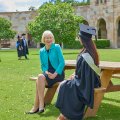
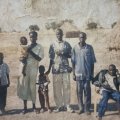
 resized.jpg?itok=4ifZbsDQ)


